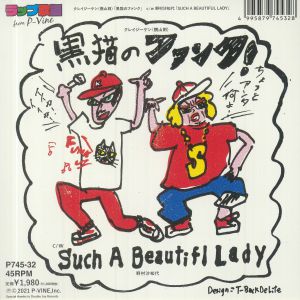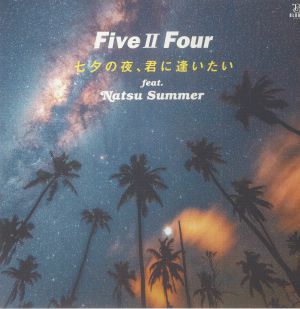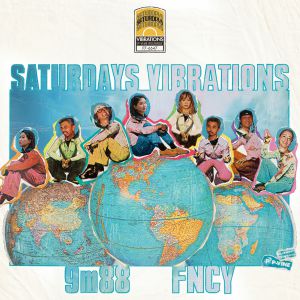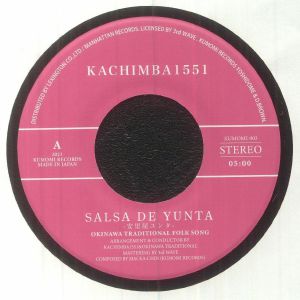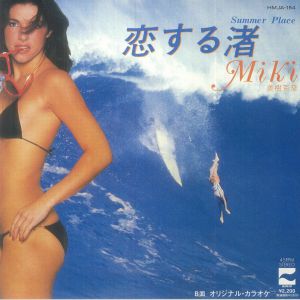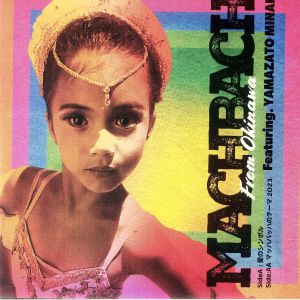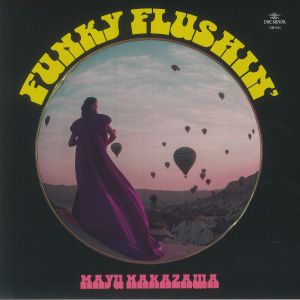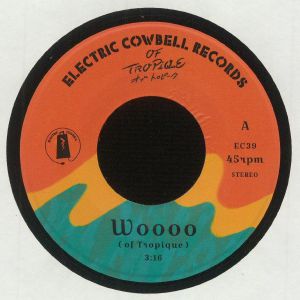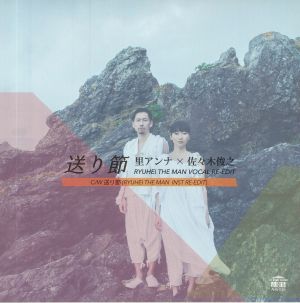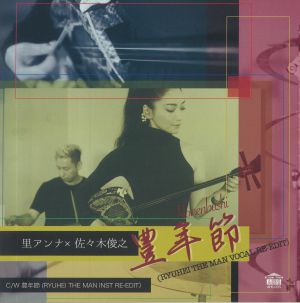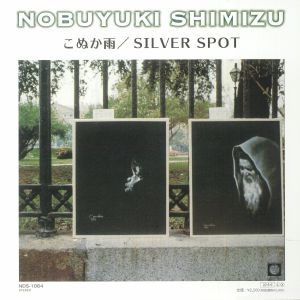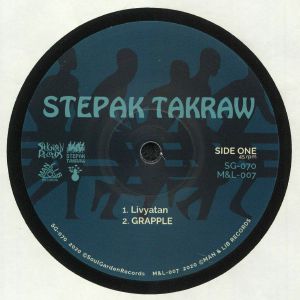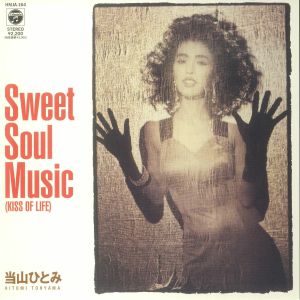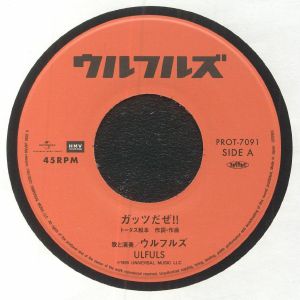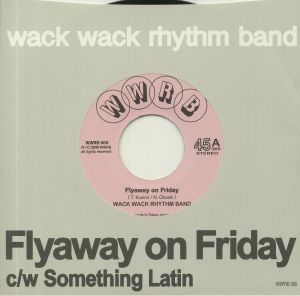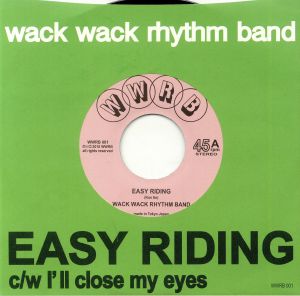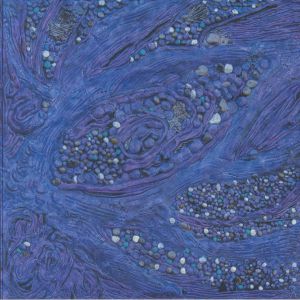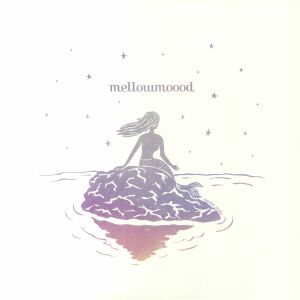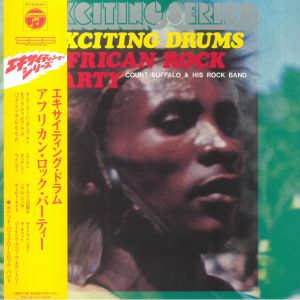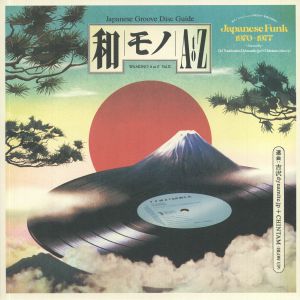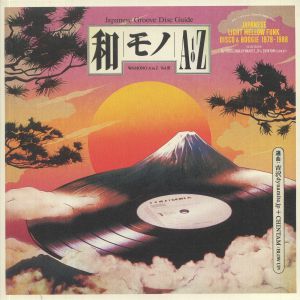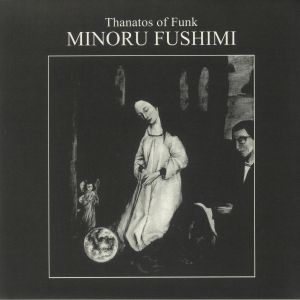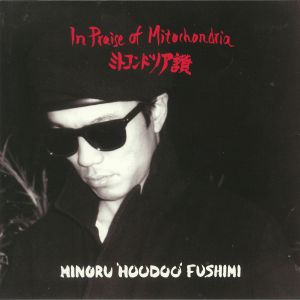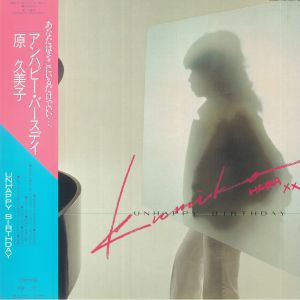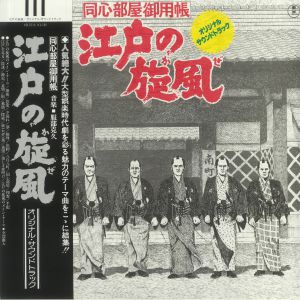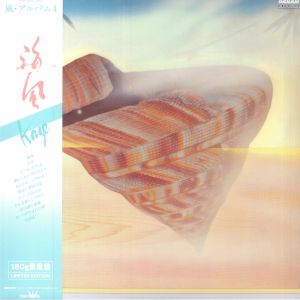Back catalogue: Funk
Juno's full catalogue of Funk
Singles
in stock $27.47
CAT BOYS feat YUIMA ENYA
Feel Like Makin' Love (7" + MP3 download code)
Cat: CONY 0012. Rel: 26 Nov 20
Played by: I Love 45's!, Dynamite Cuts
out of stock $14.85
Played by: Juno Recommends International
out of stock $15.14
out of stock $23.53
out of stock $19.90
Review: Have you ever wondered what might happen when you collide Mighty Ryeders' timeless rare-groove classic 'Evil Vibrations' and De La Soul's iconic hip-hop jam 'A Roller Skating Jam Named 'Saturdays'' into one new tune? Well, wonder now more, because that's exactly what Groove-Diggers have done here. This fresh version blends the sampled parts of 'Evil Vibrations' with De La Soul's raps and vocals while Japanese hip-hop group FNCY have added their own new mic work into the mix as a way of paying tribute to De La Soul's original hit. Also included is a Japanese cover of 'Evil Vibrations' by Taiwanese jazz and neo-soul singer 9m88 which brings a whole different respective. A fun and sure-to-be effective package.
… Read morePlayed by: Charlie bucket/ dancing in space
out of stock $18.78
out of stock $22.41
Rock Steady (reissue) (transparent green vinyl 7")
Cat: SG 081GREEN. Rel: 22 Dec 22
Review: Jaribu Afrobeat Arkestra are an entirely unique phenomenon, a Japanese collective pushing forward Neo-Afrobeat with heavy influence of the classic Japanese jazz sound and the long tradition of covering iconic western soul/funk tracks. Aretha Franklin's 'Rock Steady' is a collaboration with fellow Japanese artist Tina (aka Luv Tina), a decorated vocal powerhouse in the early 2000s R&B landscape, culminating in a mind-boggling genre mashup that defies expectations. The J.A.A. chorus section matches Tina's power perfectly with the blaring jazz instrumental, with phenomenal sax and trumpets. Swipe this coloured reissue before it goes again, you have to hear it to feel it.
… Read morePlayed by: Voodoocuts
out of stock $17.93
Review: The JariBu Afrobeat Arkestra formed in 2006 with a strong influence from grandmaster Fela Kuti, but equally with a clear-sighted intention to take their music in a new direction they deemed neoafrobeat. Japanese label Soul Garden have become a natural home for their sound since 2009 debut LP Afro Sound System, and they're back on Soul Garden once again with their latest single, a cover of Aretha Franklin's universally adored funk pinnacle, 'Rock Steady'. As well as the band's effervescent original version on the A side, on the flip we get an edit of the track by MACKA-CHIN with just a few tweaks here and there for the DJs.
… Read morePlayed by: * Record Breakin' Music *
out of stock $21.30
Review: The titular release from Kumomi Records, based in Japan, hears Okinawa salsa band Kachimba 1551 fuse two enduring traditions: Okinawa folk music and salsa. The band embarked on this fusion first in 1998 and have continued their activities in their hometown of Okinawa ever since. A-sider, their rendition of 'Asatoya Yunta', appears first - a folk song said to have originated on Taketomi Island in the Yaeyama Islands, and which has been covered by many musicians around the world (including Ryuichi Sakamoto, Haruomi Hosono, and Akiko Yano). On the B, meanwhile, is 'Uminu Chinboraa', said to have been handed down from 'Ie Island In Kunigami Gun Of Okinawa', a folk song known for its use in traditional party settings.
… Read morePlayed by: Galletas Calientes
out of stock $18.78
out of stock $22.71
in stock $21.58
in stock $16.80
Review: It was way back in 1998 when Japan's undisputed King of Diggin', DJ.producer/mix-maker and dedicated record collector Muro, first released 'Han-Tome'. These days, it's regarded as a Japanese hip-hop classic, and listening back to this reissue it's easy to see why: the beats are dope, the producer's jazz and orchestral samples beautifully incorporated into the backing track, and the combination of Japanese rap verses and R&B style sung choruses every bit as good as those you'd expect on big-name American tracks from the same period. As it did first time around, the track comes backed by the superb 'Flutestrumental Mix'. This adds sun-kissed keyboard stabs and flighty flute solos to Muro's formidably head-nodding beats..
… Read moreout of stock $24.11
in stock $20.17
Cat: DM 024. Rel: 30 Apr 22
out of stock $24.11
Played by: Juno Recommends International
out of stock $12.89
Review: Q.A.S.B. is a Japanese funk and soul ensemble with a.yu.mi. handling lead vocals, a singer celebrated for her funky style reminiscent of James Brown but captured here in a more romantic and subdued mood here. 'Will' is a new single on Soul Garden that offers up soulful and pop-leading sounds with elegant vocals and graceful grooves backed by big band horns. Interestingly, the same tune gets served up again on the flipside, only sung in English. It neither improves nor detracts from the original but proves to be an interesting experiment for that reason.
… Read morein stock $10.33
Crossroad Of Love (limited green vinyl 7")
Cat: BTR 30GREEN. Rel: 26 Aug 22
Played by: DJ Kobayashi, Juno Recommends International
out of stock $16.25
Review: Experienced Japanese singer Anna Soto and jazz-funk multi-instrumentalist Toshiyuki Sasaki have offered up a number of collaborative singles of late, each of which has been given the re-edit treatment by one-man production line Ryuhei The Man. As with the other recent Sato/Sasaki releases he's tweaked, Ryuhei offers up two edits of 'Okuribushi', a bustling affair that combines traditional Japanese vocals and instrumentation (and specifically the sound of the shansin, a three-stringed instrument from Osaka) with driving drums that sit somewhere between celebratory disco and the jazz stylings of Max Roach. The superior version - for us, at least - is the full vocal A-side edit, though some may prefer Ryuhei's instrumental take.
… Read morePlayed by: I Love 45's!, Dynamite Cuts
out of stock $19.62
Review: You wait for one collaboration between singer Anna Sato and multi-instrumentalist Toshiyki Sasaki, and four come along at once. As he did with the pair's three previous collaborative 45s, all of which were released simultaneously this week, experienced re-editor Ryuhei The Man is the, erm, man applying the magic dancefloor touch. On side A, he delivers a vocal edit of 'Hounenbushi', an inventive fusion of traditional-sounding singing, sanshin sounds and loose-limbed but laidback jazz-funk drumming courtesy of Sasaki. The quality of the latter's drumming and Sato's sanshin playing comes through loud and clear on the flipside instrumental edit.
… Read morePlayed by: I Love 45's!
out of stock $12.89
in stock $22.15
Sex Machine (7" + insert + MP3 download code)
Cat: PARK 1044. Rel: 21 Jun 22
Review: By now, we've become accustomed to Japanese outfit Inosakira Rangers offering up reggae and vintage rocksteady style cover versions of pop and dance tracks of old. Their latest cover, of James Brown classic 'Sex Machine', is a little different. It's no less warm, dusty or on-point than its predecessors, but there's no reggae or rocksteady flex - just a warmer, more laidback take on the funk classic, complete with distinctive lead vocals from Keichi Sokabe. They're back in lazy, Sunday afternoon rocksteady mode on original B-side 'Nagoriyuki', a sweet and quietly soulful number that pushes the band's bassist and organist - or more specifically their fine instrumentation - high in the mix for added nostalgic pleasure.
… Read morePlayed by: Mukatsuku Records Chart, Juno Recommends Funk
out of stock $15.14
out of stock $34.75
Smile In Your Face (7")
Cat: URDC 67. Rel: 04 Nov 22
out of stock $19.90
Review: Hitomi Toyama's 'Sweet Soul Music' originally made it to wax last year, when the track appeared as part of a rare Japanese funk compilation curated by the sound's brightest stars, Wamono. Now, though, it gets a proper release on 7", and is backended by the sultry B-side 'Wanna Kiss', which sounds pitched up and chirpy in its shrill alto vocals, which assure us we're held. The A, meanwhile, is as horny (in both senses of the word) as ever, quite obviously singing the praises of "sweet soul music... I love you!"
… Read morePlayed by: Juno Recommends Disco, Dynamite Cuts
in stock $22.41
Played by: Mukatsuku Records Chart
out of stock $12.32
out of stock $21.03
out of stock $19.05
out of stock $24.11
Albums
Review: Ajate's third album, Dala Toni, is a vibrant fusion of Afro groove and Japanese traditional Ohayashi music, showcasing the band's innovative approach to blending diverse musical traditions. Founded by Japanese musician Junichiro "John" Imaeda after a revelatory experience in West Africa, Ajate brings together ten passionate musicians to create music that transcends cultural boundaries. Utilizing a mix of traditional instruments like drums, flutes, and bells, as well as handmade bamboo instruments crafted by Imaeda himself, such as the unique 'Jaate' and 'Piechiku,' Ajate's sound is both powerful and distinctive. Their incorporation of Afrobeat rhythms and Japanese vocals adds further depth and richness to their music, reflecting themes of human connection, unity, and the joy of life.Having gained acclaim for their explosive live performances in Japan and beyond, including appearances at prestigious festivals like Sukiyaki Meets The World and WOMAD UK, Ajate's music resonates with audiences worldwide. With Dala Toni, they continue to push the boundaries of global music, solidifying their position as pioneers of the genre "made in Japan."
… Read morePlayed by: Juno Recommends International
in stock $31.95
out of stock $42.89
Exciting Drums African Rock Party (Japanese Edition) (gatefold LP with obi-strip)
Cat: HMJY 183. Rel: 31 Jan 23
Review: Originally released in 1969, Exciting Drums African Rock Party is the first album from Akira Ishikawa under his Count Buffalo alias. It's a wide-ranging affair which includes covers of contemporary standards such as 'You Keep Me Hanging On', 'Back In The U.S.S.R.' and 'Soul Limbo', all given a bold and brassy jazz revision by Ishikawa's band, which included Hiromasa Suzuki on piano, Masaoki Terakawa on bass and Takeru Muraoka on tenor sax. This is the first time it's been repressed since its release, so you can expect all Japanese jazz aficionados to be jumping on this one quickly.
… Read morePlayed by: Mukatsuku Records Chart
in stock $44.29
DJ YOSHIZAWA DYNAMITE JP / CHINTAM / VARIOUS
Wamono A To Z Vol II: Japanese Funk 1970-1977 (180 gram vinyl LP)
Cat: 180G WALP02. Rel: 08 Apr 21
Review: On the first instalment in the Wamono A to Z compilation series, released in September 2020, dusty-fingered diggers DJ Yoshizawa Dynamite.jp and Chintam focused on Japanese jazz-funk and rare groove gems recorded and released between 1968 and '80. For this speedy sequel, they've narrowed their focus further in order to showcase little-known Japanese funk slammers pressed to wax between 1970 and '77. As you'd expect, there's tons of absolute bangers amongst the 10 tracks on show, with highlights including the Blaxploitation movie soundtrack vibes of Mieko Hirota's 'Theme of Doberman Cop', the fuzzy, Hammond-sporting psych-funk of Fujio Tokita's quirky 'Watashi No Beatles', and the energetic, proto disco-funk of Hatsumi Shibata's 'Singer Lady'.
… Read morePlayed by: Juno Recommends Funk, DJ Kobayashi
in stock $28.87
DJ YOSHIZAWA DYNAMITE JP / CHINTAM / VARIOUS
Wamono A to Z Vol III: Japanese Light Mellow Funk Disco & Boogie 1978-1988 (180 gram vinyl LP)
Cat: 180GWALP 03. Rel: 30 Sep 21
Review: For the latest edition of their essential Wamano A to Z compilation series - the third to date - DJ Yoshiwza Dynamite JP and Chintam have decided to focus on "Japanese light mellow funk, disco and boogie" tracks recorded between 1978 and '88. Like its' predecessors, the eight-track set is heavy on obscurities and little-known cuts, as well as bona fide killer cuts. There's much to savour throughout, from the intergalactic, slap-bass propelled boogie brilliance of Jadoes' 'Friday Night (Extended Mix)' and the laidback funk bliss of Yumi Sato's 'Ame', to the smooth jazz-funk lusciousness of Hitomi Tohyama's 'Rainy Driver' and the Latin-infused, Teena Marie style electrofunk brilliance of Mizuki Koyami's 'Kare Niwa Kanawanai'.
… Read morePlayed by: DJ Kobayashi, Juno Recommends International
in stock $28.87
out of stock $41.21
Thanatos Of Funk (heavyweight vinyl LP + booklet)
Cat: 180GRELP 02. Rel: 05 May 22
Review: Minoru Fushimi originally released Thanatos Of Funk in 1985, proving that boogie wasn't exclusive to the US. You can hear his Japanese culture coming through on this incredible album, not least reinterpreting traditional song 'Dompan', but in truth this is a faithful and on-point run at everything electro funk stood for in the mid 80s. There's that necessary streak of humour in tracks like 'Disco Thesis', but primarily this is all about how dope that Moog lines and slick bass slaps sound mixed up with the swathes of vocoder. If you're serious about boogie, you might have had this one in your sights for some time. Finally, your chance has come, so don't waste time snapping up this stellar boogie bomb.
… Read moreout of stock $36.43
In Praise Of Mitochondria (gatefold 2xLP)
Cat: LER 1009. Rel: 27 Sep 17
Review: Japanese original Minoru Hoodoo Fushimi self released four albums between 1985 and 1992. With this compilation, Australia's Left Ear Records have selected 12 tracks for a double vinyl retrospective. Minoru set out to combine his love of all things funk, with traditional instruments and song from his homeland. His vocals switch between raps about cellular metabolism and haemoglobin, soulful crooning and vocoder. On "Shinz-San" he adds metal guitar to vintage Sugarhill Gang and he goes crazy with his sampler. Scratching in cats, frogs, babies, laughter, giggles, traffic jams, failing ignitions, opera singers and amorous sighs. Meanwhile "Furarete" mixes elephant roars and go-go. Curious oddities from a fogotten hero of the Japanese underground.
… Read moreout of stock $32.50
Midnight Cruisin' (reissue) (translucent red vinyl LP + insert)
Cat: WQJL 159. Rel: 09 Nov 22
Review: Hamada Kingo's distinctive brand of city pop was always one that reflected on the nighttime; and that's all well and good, because it's high time someone prioritised the nightowls among us. Kingo's fourth album featured such noir, streetlight-soaked deep funk cuts such as 'Yakogao no Taxi Driver' and 'Midnight Cruisin', owing well to the solo singer-songwriter's sensitive vocal and guitar talents. This reissue comes via Light In The Attic, on loan from Moon Records' original 1982 release.
… Read moreout of stock $42.33
out of stock $42.33
out of stock $42.33
out of stock $55.22
out of stock $42.04
Review: A long-time-coming reissue of a lesser known live funk album, showcasing the deft J-funk stylings of the genre's foremost legend Jiro Inagaki on the A - as well as lesser-spotted curios from fellow artists Taeko Morino, Eddy Clan and Akira Ishikawa on the B. Packed with futuristic synths and boasting a rather dry, untainted sound, we're most impressed by Morino's slow Anglophone ballad, which we'd describe as most haunting and mesmerising.
… Read moreout of stock $40.08
out of stock $50.44
Uganda: Dawn Of Rock (reissue) (LP with obi-strip)
Cat: MRBLP 239B. Rel: 14 Feb 24
Review: Uganda: Dawn Of Rock is a great collision of creative talents from Akira Ishikawa and Count Buffaloes who combine to deliver a captivating exploration of rock music's emergence in Uganda. A classic since it was first issued, the album showcases Ishikawa's masterful drumming and Count Buffaloes' dynamic instrumentation. It overflows with infectious rhythms and soulful melodies and each track immerses listeners in the vibrant music scene of Uganda where rock and local African sounds are fused into something new. As such this is a record that offers a perfect glimpse into a pivotal moment in Uganda's musical history.
… Read morePlayed by: Juno Recommends International
in stock $24.39
New World (heavyweight blue vinyl LP)
Cat: SG 067. Rel: 11 Apr 20
out of stock $33.35
Butterfly (reissue) (heavyweight vinyl LP + insert with obi-strip)
Cat: BEWITH 028LP. Rel: 22 May 18
in stock $36.16
out of stock $38.12
out of stock $34.75

 USD
USD








